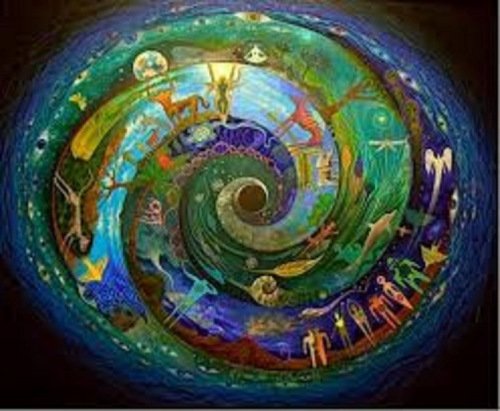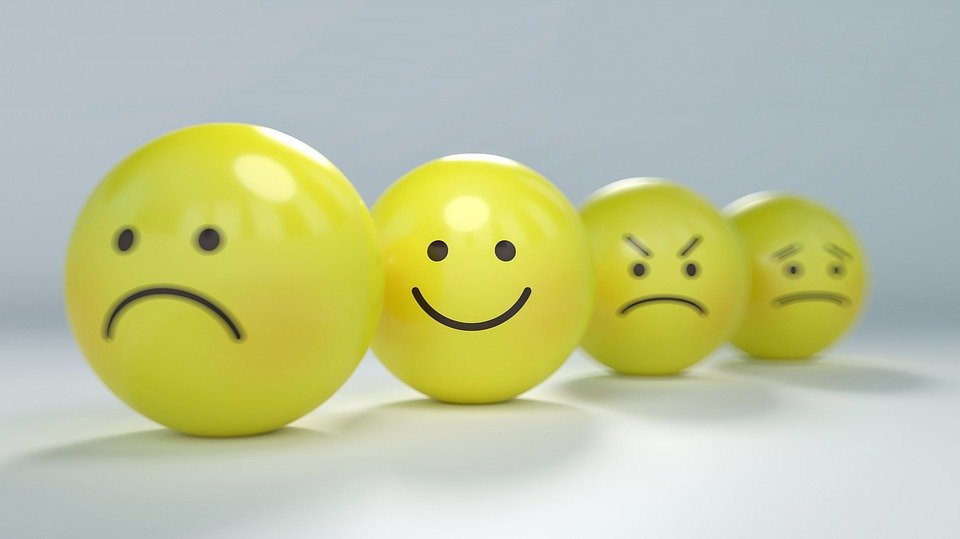
Source
How long have you been searching for happiness? When has been the last time you felt peacefully happy? How do you perceive happiness and How far is it?
**
The quest for happiness is as old as humanity itself. Through years each person’s ultimate endeavor has been to feel happy and content. No matter what actually he sought after, it should eventually lead him to happiness.
For each civilization and geographical territory people were on their quest for happiness. Through this quest others managed to reach power, control and money by convincing people that they held keys to ultimate, everlasting happiness either in this lifetime or in another.
For each society, or family there are ready-made answers for every question, agreed upon and exclusive road map for happiness, a list of "do"’s and "don't"’s to attain to the social ideal adopted by such family or society.
Some people are searching for happiness in power; others search in fame, others in wealth, health, religion and relationships. Some take pride in their ethnicity, others in their color, others in wealth, others in religions and others in the sports team they feel to belong to.
The irony is that among all this chaos happy people do exist with no sign of owning any of what others believe is essential for happiness. Those happy people aren’t even noticed because they live simply and have no tendency to brag about anything which is part of why they are happy.
On the other side, many of those who managed to succeed according to the said means still surprisingly suffer. Consider celebrities who are on antidepressants, ultra wealthy individuals who are on drugs, religious leaders who fight each other for more dominance and politicians who feel insecure enough to devise lies in order to protect their positions. Obviously, something is still missing.

Social conditioning & Externalization of happiness;
Allow yourself to assimilate the fact that happiness is the natural state of being. If you don’t believe, try remembering when you were a kid. Happiness for you lied then in the simplest of things or in nothing at all. You had a sense of unquestionable wholeness. Your life was joyful unless you are sick or restricted. Then you start learning how to look outside of you for happiness, compare your life with others’, how money, relationships and fame are critical means of happiness, and how abandoned, left behind, not competent, worthless, or miserable missing such things would tell about and make out of you. Such lessons swayed you from the natural state of contentment, implies you are not whole, making you feel insecure and demanding, and there should be something wrong with you if you don’t seek what is critical for happiness.
As adult, old lessons are still in action, they are old enough to control you from the shadows of your unconscious and strong enough to form your reactions, and dictate your preferences.
The insecurities, self-doubts, distractions caused by social conditioning are repeatedly utilized by corporations, governments, advertising companies to benefit from you, emphasizing on your lack of wholeness, neediness, and incompetence. Take advertising industry as example. They persistently and unethically keep creating the need for their products by awakening people’s lack of confidence, insecurity, and the need to be acknowledged in order to project their products as the ultimate solution of your problems, the ultimate booster of your confidence and the ultimate provider of joy. Consequently; in people minds happiness has become tied to certain products, lifestyles, places and many other material things.
Higher minimum acceptable standard of living, a predefined path life should follow, higher expectations from life and others are other consequences of social conditioning and are adopted by many. Unfortunately, making their lives rather difficult and happiness seem further.
The pursuit of happiness never ends.
In alignment with externalization of happiness comes “The pursuit of happiness“ which is being used as indication that each person has the right to be happy, but subtly it emphasizes that happiness is something that is not present and people have to chase what could bring them happiness.
The more you chase happiness the further it gets.
Actually it works in the opposite direction; the more you seek in life the less you feel happy. Everything you believe you can’t live without adds to your lack of wholeness. The good feeling you get directly after acquiring what you have been seeking doesn’t come necessarily from what you reached rather it comes because you finally rid yourself from the burden of desire and the sensation of not being whole associated with it. So, what about not developing the desire in the first place?

Source
Your Life; the repetitive story your mind tells.
Most of us perceive their lives as stories. In our minds life is a progression of events that follow each other, Flashbacks on certain moments of the past threaded together to form the stories we often cling to as our lives.
Perceiving one’s life as a story brings suffering. What goes wrong and what goes right, moving up and down our emotional roller coaster. As a story, life is supposed to move in predefined direction. We are harsh on ourselves about how the story shall proceed and how life is supposed to be. As we repeat the story we emphasize on suffering. We mentally recreate past misfortunes and old traumas.
Actually, all aspects of one’s life are nowhere to be found but in present moment. Past moments are no longer part of your life except as thoughts dwelling in your mind. Past failures, setbacks, misfortunes, and traumas are now thoughts that have no power dictating your life but the one you give to them.

Conceptualization of happiness.
Happiness is a feeling that is basically independent from external factors. It is a product of heart we can’t attain through our minds. Having a specific definition of what happiness is and what it requires limit our ability to feel happy. The more we tend to conceptualize happiness the more elusive it gets.
On the way back to happiness
Happiness is not something we chase, it is something we allow. It is ever present, needs only to be tuned into. It is more accessible when disassociated from circumstances, concepts, ideologies, material, and immaterial things. Being happy is not a matter of learning new lessons rather one of unlearning old ones.

